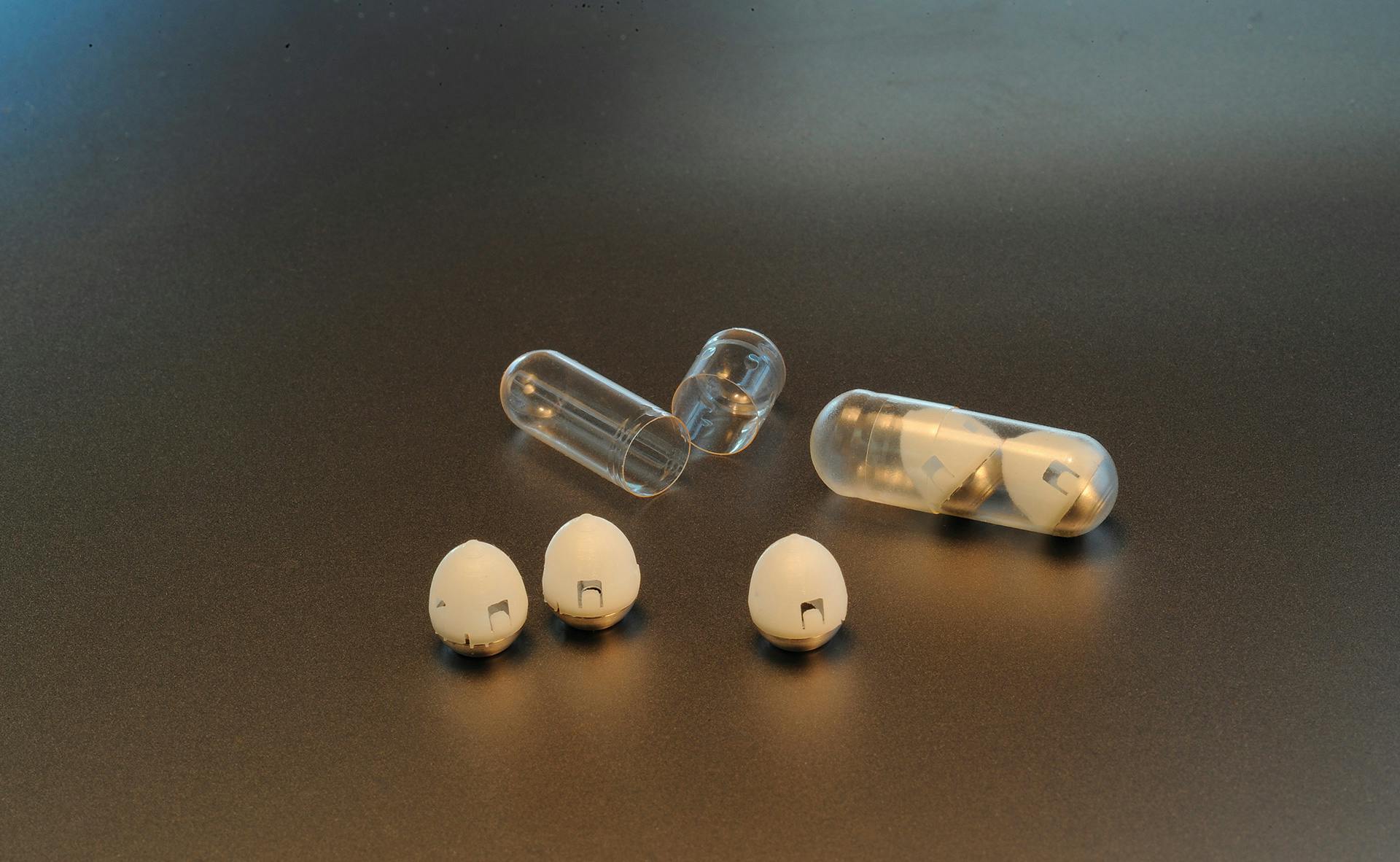In a study published in the journal Science this February, researchers from MIT, Harvard, and the pharmaceutical company Novo Nordisk describe a new innovation: a pea-sized pill that conceals a small biodegradable needle that injects insulin into the stomach lining. If successful, such a device could replace traditional insulin injections.
“To ensure that the drug is injected into the stomach wall, the researchers designed their system so that no matter how the capsule lands in the stomach, it can orient itself so the needle is in contact with the lining of the stomach,” according to an MIT statement.
The researchers were inspired by the leopard tortoise, whose sloped shell always allows it to right itself. Their tiny capsule has a similar shape and a weighted bottom, so that once it reaches the stomach it automatically rolls into position. After a few minutes, the outer casing dissolves, and a small needle made almost entirely of compressed, freeze-dried insulin injects itself into the stomach lining.
The stomach lining doesn't have pain receptors, so researchers believe the entire process will be painless. After the pill releases its contents, it passes harmlessly through the digestive system. Initial tests on animals suggest that the pill works as well as normal injections at controlling blood-sugar levels, but only when taken on an empty stomach.
The study notes that more research is needed to see how the stomach handles daily micro-injections. Researchers hope that one day this device could be used to deliver other drugs besides insulin. They also hope this device might offer a way to reduce the multi-billion-dollar problem with drug adherence, since many patients don't take the drugs in the amount or way in which they were prescribed.
“Many patients delay therapy because it requires an injection,” Giovanni Traverso, a gastroenterologist at Brigham and Women’s Hospital and senior author on the study, told Scientific American in February 2019. “Delivering these medicines orally can have a tremendous impact."











